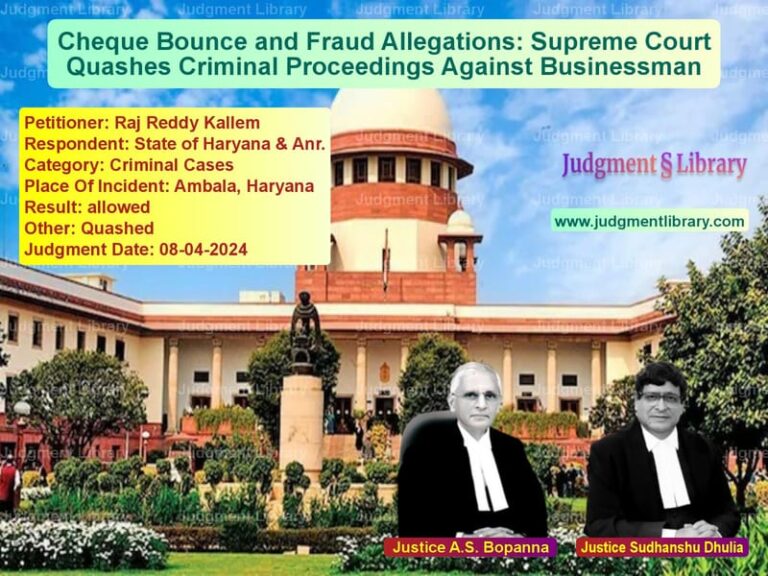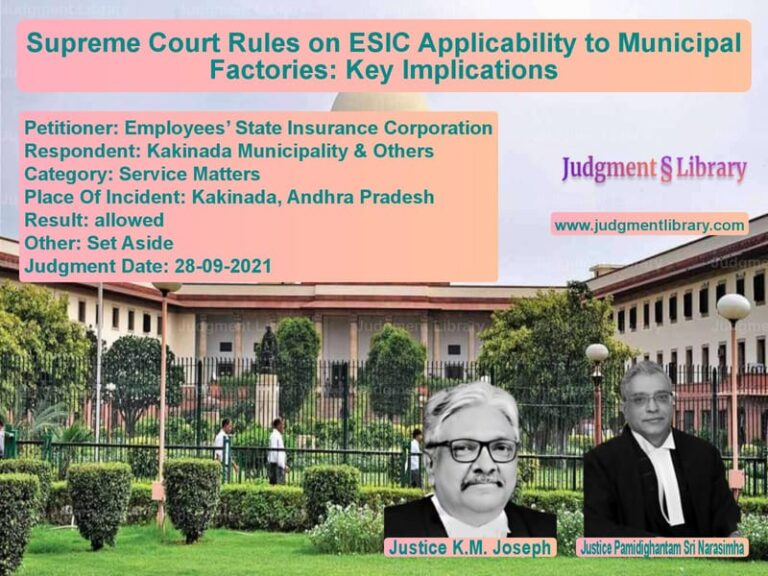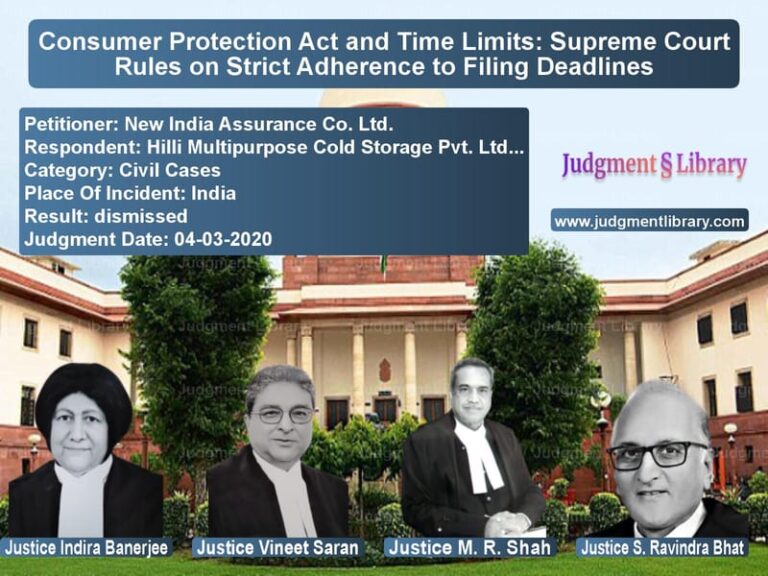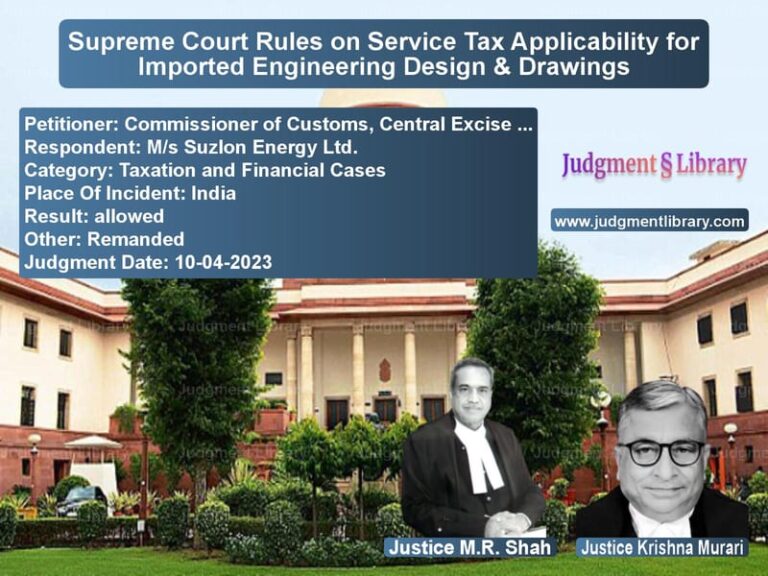Supreme Court’s Landmark Ruling on Waqf Amendment Act 2025: Key Provisions Stayed
The Supreme Court of India recently delivered a significant judgment addressing multiple petitions challenging the constitutional validity of the Waqf (Amendment) Act, 2025. The case, heard by a bench led by Chief Justice B.R. Gavai alongside Justice Augustine George Masih, examined whether the amended provisions should be stayed pending final hearing of the matters.
The petitioners, represented by senior counsels including Kapil Sibal, Dr. Rajeev Dhavan, Dr. A.M. Singhvi, Shri C.U. Singh, and Shri Huzefa Ahmadi, argued that the amendments violated several fundamental rights under Articles 14, 15, 19, 21, 25, 26, 29, 30 and 300A of the Constitution. They contended that the real intention behind the Act was to “expropriate Waqf properties” rather than protect them as claimed.
Key Petitioners’ Arguments
Shri Kapil Sibal argued that the requirement for a person to “show or demonstrate that he is practicing Islam for at least five years” for declaring property as Waqf was “totally discriminatory and arbitrary.” He emphasized that “no such provision is there insofar as other religions are concerned” and that this requirement violated Articles 14, 15, 19, 21, 25 and 26 of the Constitution.
Regarding the deletion of “Waqf by User,” Sibal contended that prior to 1954, registration of such Waqfs was not necessary, and the new requirement for existing Waqfs by user to register before the commencement of the impugned Act would adversely affect many properties.
Dr. Singhvi described the five-year practice requirement as intended to “infuse terror and give entire control in the hands of the State leading to endless visits to government offices and thereby harassing them.” He argued this created a “Catch 22 situation” where authorities could refuse registration based on disputes while unregistered Waqfs would be “remediless” to file proceedings.
Shri Huzefa Ahmadi challenged Section 3E which bars declaration of tribal land as Waqf property, arguing it affected both future and past dedications and was “violative of the fundamental rights of the persons professing Islam.”
Government’s Defense
Shri Tushar Mehta, the Solicitor General representing the Union of India, defended the legislation, stating that “the presumption of validity is always in favour of the legislation” and that “a very heavy burden would lie on them to dislodge the presumption regarding the constitutionality of the statute.”
Read also: https://judgmentlibrary.com/supreme-court-launches-nationwide-disability-rights-monitoring-project/
Regarding “Waqf by User,” Mehta argued that the amendment was prospective and all registered Waqfs as of April 8, 2025, would be protected except where properties were disputed or government-owned. He cited instances like State of Andhra Pradesh v. Andhra Pradesh State Wakf Board where “vast chunk of Government land was encroached upon and the Waqf Board had registered the same as ‘Waqf by User’.”
On the inclusion of non-Muslim members in Waqf bodies, Mehta clarified that in the Central Waqf Council, “at the most, the Council may consist of 4 non-Muslim members” and in State Boards, “at the most, at that given point of time, there would be only 3 non-Muslims in the Board out of a total of 11 members.”
Court’s Analysis and Key Observations
The Court began by reiterating established principles regarding interim stays on legislation, noting that “courts should be very slow in granting interim relief by way of staying the provisions of an enactment” and such relief should only be granted in “rare and exceptional cases.” The Court emphasized that “there is always a presumption in favour of constitutionality of an enactment and the burden is upon him who attacks it to show that there has been a clear transgression of the constitutional principles.”
The judgment extensively traced the legislative history of Waqf laws from the Mussalman Wakf Act of 1923, noting that even a century ago, the legislature had found that “instances of such misuse of trust property were unfortunately so very common that a wakf endowment had now come to be regarded by the public as only a clever device to tie up property in order to defeat creditors and generally to evade the law under the cloak of a plausible dedication to the Almighty.”
Regarding the five-year practice requirement, the Court observed: “Prima facie, we are of the view that such a provision cannot be said to be arbitrary or discriminatory.” The Court noted the possibility of persons converting to Islam “only in order to take benefit of the protection of Waqf Act so as to defeat creditors and evade the law” and referenced the common knowledge that “many persons, who, under the relevant personal laws, are not entitled to marry with a second woman during the subsistence of their first marriage… in order to avoid the rigour of criminal offence, convert themselves into Islamic religion.”
However, the Court stayed this provision because “no mechanism or procedure has been provided as of now for ascertaining as to whether a person has been practicing Islam for at least 5 years or not.”
On the deletion of “Waqf by User,” the Court noted that if “Mutawallis for a period of 102 years could not get the waqf registered, as required under the earlier provisions, they cannot claim that they be allowed to continue with the waqf even if they are not registered.” The Court found that if the legislature, “on noticing misuse of the waqf properties, finds that after the enactment of the impugned Act all such applications should be accompanied by a copy of the waqf deed, the same cannot be said to be arbitrary.”
Regarding Section 3C concerning government properties, the Court found the main provisions prima facie valid but stayed the proviso to sub-section (2) and sub-sections (3) and (4), observing: “We are of the view that a provision, by way of which even before an inquiry is conducted by the designated officer as to whether any property is a Government property or not and even before the designated officer submits his report to the State Government, providing that such a property cannot be treated as waqf property in the interregnum, is, at least, prima facie arbitrary.”
The Court also emphasized that “the question of determination of the title of a property will have to, in our considered opinion, be resolved by a judicial or quasi-judicial authority” rather than revenue officers, noting that the Waqf Tribunal with a former District Judge as Chairman was the appropriate forum.
Court’s Directions and Conclusion
While rejecting the plea for staying the entire Act, the Court issued specific directions to balance equities during the pendency of the matters. The five-year practice requirement was stayed until rules are framed for its implementation. Critical portions of Section 3C concerning government properties were stayed, and protection was granted to Waqfs from dispossession until final determination by the Tribunal.
The Court directed that the Central Waqf Council shall not have more than 4 non-Muslim members out of 22, and State Boards shall not have more than 3 non-Muslim members out of 11. While not staying the provision allowing non-Muslim Chief Executive Officers, the Court directed that “as far as possible, an effort should be made to appoint the Chief Executive Officer of the Board who is the ex-officio Secretary from amongst the Muslim community.”
The Court clarified that its observations were “prima facie consideration for the purpose of examining as to whether an interim stay should be granted or not” and would not prevent parties from making submissions on the validity of provisions during final hearing.
This judgment represents a balanced approach, upholding the legislature’s authority while protecting against potentially arbitrary implementations, ensuring that religious rights are safeguarded while preventing misuse of Waqf provisions. The case will continue with final hearings on the constitutional validity of the challenged provisions.
Petitioner Name: Multiple Petitioners including IN RE: THE WAQF AMENDMENT ACT, 2025.Respondent Name: Union of India.Judgment By: Justice B.R. Gavai, Justice Augustine George Masih.Place Of Incident: India.Judgment Date: 15-09-2025.Result: partially allowed.
Don’t miss out on the full details! Download the complete judgment in PDF format below and gain valuable insights instantly!
Download Judgment: multiple-petitioners-vs-union-of-india-supreme-court-of-india-judgment-dated-15-09-2025.pdf
Directly Download Judgment: Directly download this Judgment
See all petitions in Fundamental Rights
See all petitions in Constitution Interpretation
See all petitions in Legislative Powers
See all petitions in Public Interest Litigation
See all petitions in Separation of Powers
See all petitions in Property Disputes
See all petitions in Education Related Cases
See all petitions in Reservation Cases
See all petitions in Judgment by B R Gavai
See all petitions in Judgment by Augustine George Masih
See all petitions in partially allowed
See all petitions in Stayed
See all petitions in supreme court of India judgments September 2025
See all petitions in 2025 judgments
See all posts in Constitutional Cases Category
See all allowed petitions in Constitutional Cases Category
See all Dismissed petitions in Constitutional Cases Category
See all partially allowed petitions in Constitutional Cases Category







